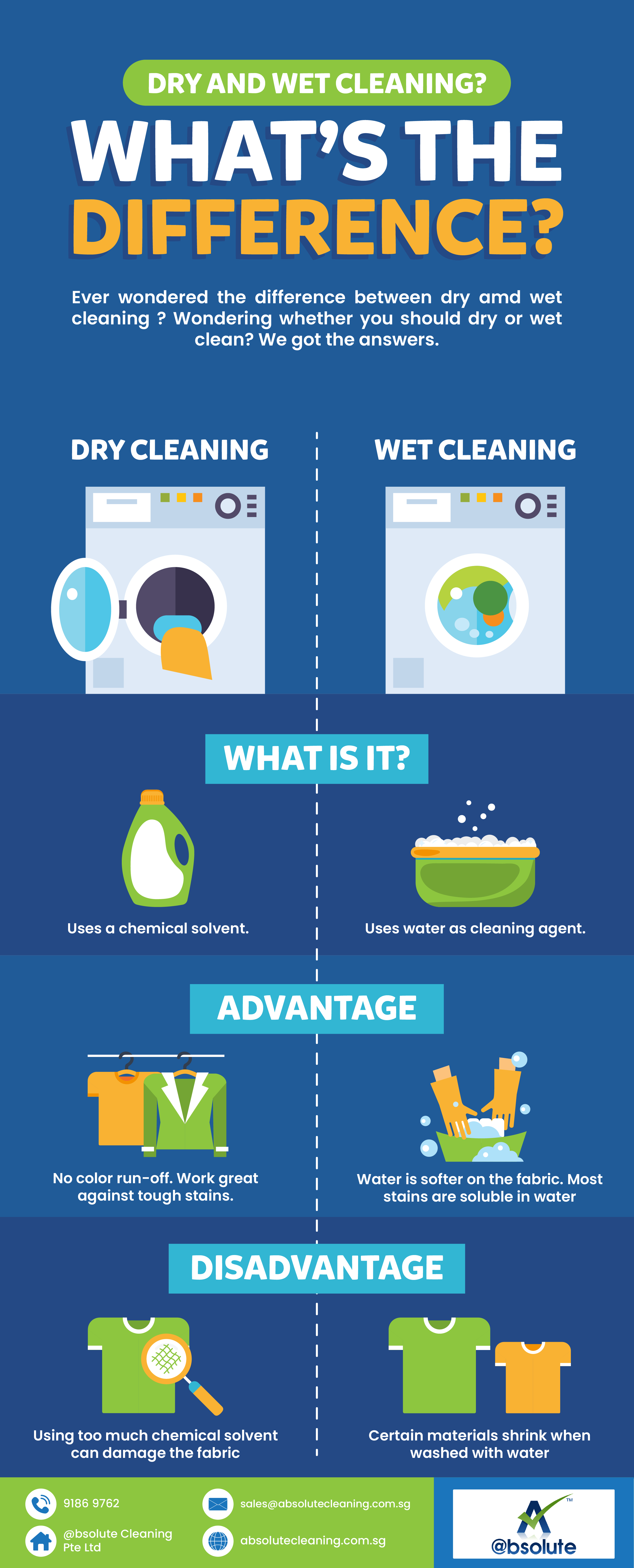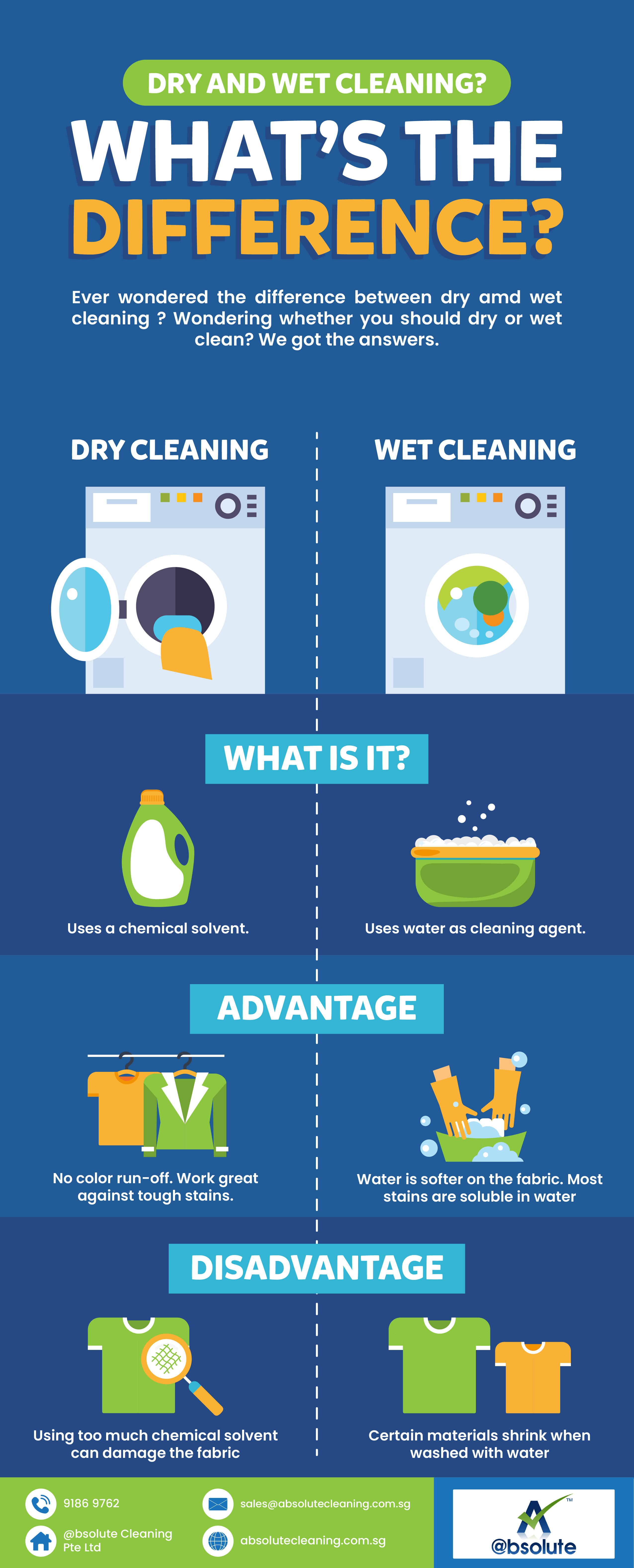Have you ever wondered about the difference between dry cleaning and laundry? You’re not alone! While both are methods of cleaning clothes, there are some key differences that make them suitable for different types of fabrics and stains.
Laundry involves washing clothes with water and detergent, while dry cleaning uses a chemical solvent to remove dirt and stains. But that’s just the beginning of the story. Read on to discover more about the pros and cons of each method, and when you should choose one over the other.
Dry cleaning uses a special solvent to remove stains and dirt from delicate fabrics that cannot withstand the rough and tumble of a washing machine. Laundry, on the other hand, involves washing clothes in water with detergent. While laundry is suitable for everyday clothes, dry cleaning is necessary for delicate, expensive, or heavily soiled fabrics.

What Is the Difference Between Dry Cleaning and Laundry?
When it comes to cleaning clothes, most people think of laundry as the go-to solution. However, some clothes require more specialized care. That’s where dry cleaning comes in. But what exactly is the difference between dry cleaning and laundry? In this article, we’ll explore the key differences between these two methods of cleaning clothes.
Methodology
Laundry is the traditional method of cleaning clothes. It involves washing clothes in water and detergent, either by hand or in a washing machine. Dry cleaning, on the other hand, uses a chemical solvent to clean clothes instead of water. The process typically involves the following steps:
1. Pre-treatment: Any stains or spots on the clothes are treated with a specialized solvent to help remove them.
2. Cleaning: The clothes are placed in a large machine that uses the solvent to clean them.
3. Drying: The clothes are dried using hot air and then pressed to remove any wrinkles.
Fabric Care
One of the biggest differences between laundry and dry cleaning is how they treat different fabrics. Certain fabrics such as silk, wool, and cashmere are delicate and can be easily damaged by water. These fabrics require dry cleaning to ensure they are properly cleaned and maintained. Dry cleaning is also beneficial for clothes with intricate details such as beading or sequins, which can be damaged in a washing machine.
Laundry is suitable for most everyday fabrics such as cotton, linen, and polyester. However, it’s important to note that certain fabrics such as denim and wool can shrink or lose their shape if washed in hot water, so it’s important to follow care label instructions.
Stain Removal
Another advantage of dry cleaning is that it’s more effective at removing stubborn stains than laundry. The specialized solvents used in dry cleaning can break down tough stains such as grease, oil, and ink. Laundry detergents are not as effective at removing these types of stains.
That being said, some stains such as sweat and blood can be effectively removed with laundry detergent. It’s important to treat stains as soon as possible to increase the chances of successful removal.
Environmental Impact
One downside of dry cleaning is that it’s not as environmentally friendly as laundry. The solvents used in dry cleaning can be harmful to the environment and human health if not disposed of properly. Some dry cleaners have switched to more eco-friendly solvents such as liquid carbon dioxide or wet cleaning, but these methods are not as widely available.
Laundry, on the other hand, uses water and detergent which are less harmful to the environment. However, it’s important to use eco-friendly detergents and wash clothes in cold water to reduce energy consumption.
Cost
Dry cleaning is generally more expensive than laundry due to the specialized equipment and solvents used. However, the cost can vary depending on the type of garment and the level of cleaning required. Certain fabrics and delicate items may require more specialized care, which can drive up the cost of dry cleaning.
Laundry is generally more affordable, especially if done at home. However, it’s important to consider the cost of water, detergent, and energy consumption when washing clothes at home.
Convenience
Laundry is generally more convenient than dry cleaning as it can be done at home or at a laundromat. Dry cleaning requires dropping off clothes at a specialized facility and waiting for them to be cleaned and returned. However, some dry cleaners offer same-day or next-day service for an additional fee.
Benefits of Dry Cleaning
– More effective at removing stubborn stains
– Suitable for delicate and intricate fabrics
– Can extend the lifespan of garments by preventing damage from washing machines
– Professionally pressed and ironed for a polished look
Benefits of Laundry
– More affordable than dry cleaning
– Can be done at home or at a laundromat
– Uses less harmful chemicals than dry cleaning
– Suitable for most everyday fabrics
Dry Cleaning Vs Laundry: Which Should I Choose?
The choice between dry cleaning and laundry ultimately depends on the type of garment and the level of cleaning required. Delicate and intricate fabrics should always be dry cleaned to prevent damage. For everyday fabrics, laundry is generally more affordable and convenient. If you’re dealing with a stubborn stain, dry cleaning may be more effective at removing it. Ultimately, it’s important to follow care label instructions and consult with a professional cleaner if you’re unsure.
Frequently Asked Questions
As a professional writer, I understand the importance of clear and concise information. Here are some frequently asked questions regarding the difference between dry cleaning and laundry:
What is dry cleaning?
Dry cleaning is a process that uses a chemical solvent to clean clothes and other fabrics. The solvent is typically a liquid that does not contain water, hence the name “dry” cleaning. The clothes are placed into a machine with the solvent, which penetrates the fibers and removes dirt and stains. The clothes are then dried and pressed to create a finished appearance. Dry cleaning is typically used for delicate or expensive fabrics that cannot be washed in a traditional washing machine.
Dry cleaning has several advantages over traditional laundry methods. First, it is gentler on fabrics and can help to extend the life of your clothes. It is also more effective at removing tough stains and odors, as the solvents are able to penetrate deep into the fibers. However, dry cleaning can be more expensive than traditional laundry methods, and some people may be sensitive to the chemicals used in the process.
What is laundry?
Laundry refers to the process of washing clothes and other fabrics in water and detergent. This can be done at home using a washing machine, or at a laundromat. Laundry is typically used for everyday clothing and linens, as well as fabrics that can withstand the agitation and moisture of a washing machine.
Laundry has several advantages over dry cleaning. First, it is typically less expensive, as you can do it at home using a washing machine. It is also more environmentally friendly, as it uses water and detergent rather than chemical solvents. However, laundry may not be as effective at removing tough stains and odors, and it can be rougher on delicate fabrics.
Can all fabrics be dry cleaned?
No, not all fabrics can be dry cleaned. Some fabrics, such as silk and wool, are too delicate and can be damaged by the chemicals used in the dry cleaning process. Other fabrics, such as leather and suede, require specialized cleaning methods that are not suitable for dry cleaning. It is important to check the care label on your clothing to determine the best cleaning method.
If you are unsure whether a particular fabric can be dry cleaned, it is best to consult with a professional cleaner. They can advise you on the best cleaning method for your particular garment or fabric.
Can you wash dry clean only clothes?
It is generally not recommended to wash clothes that are labeled “dry clean only”. These garments are typically made from delicate fabrics or have embellishments that can be damaged by water or agitation. Washing these items in a traditional washing machine can cause them to shrink, lose their shape, or fade.
However, there are some fabrics that can be safely washed at home, such as cotton or polyester blends. It is important to check the care label on your clothing to determine the best cleaning method. If you are unsure, it is best to take the garment to a professional cleaner.
How often should you dry clean your clothes?
The frequency with which you should dry clean your clothes depends on several factors, such as how often you wear the garment, how dirty it gets, and the type of fabric. As a general rule, it is best to dry clean items only when necessary, as the process can be harsh on fabrics and may cause them to wear out more quickly.
Some items, such as suits, dresses, and coats, may need to be dry cleaned more frequently than others. It is best to follow the care instructions on the garment’s label, which will provide guidance on how often it should be cleaned. Additionally, it is important to store your clothes properly to help extend their lifespan and reduce the need for frequent dry cleaning.
5 Differences Between Laundry Cleaning Versus Dry Cleaning
In conclusion, knowing the difference between dry cleaning and laundry is crucial to ensure that your clothes are cleaned properly. While laundry uses water and detergent to clean clothes, dry cleaning uses a chemical solvent to clean delicate fabrics. Dry cleaning is a more expensive option, but it’s the best choice for clothes made of silk, wool, or other delicate materials. On the other hand, laundry is a more affordable option for everyday clothes made of cotton, polyester, or other similar materials.
In summary, whether you choose to dry clean or wash your clothes, it’s important to follow the care instructions on the label. This will help prolong the life of your clothes and keep them looking their best. Additionally, it’s worth noting that some fabrics may require both dry cleaning and laundry, depending on the type of stain or dirt they have accumulated. Therefore, always consult a professional cleaner to ensure that your clothes are cleaned properly and maintained in the best possible condition.

